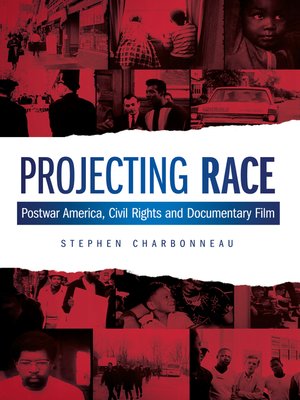Projecting Race
ebook ∣ Postwar America, Civil Rights, and Documentary Film · Nonfictions
By Stephen Charbonneau

Sign up to save your library
With an OverDrive account, you can save your favorite libraries for at-a-glance information about availability. Find out more about OverDrive accounts.
Find this title in Libby, the library reading app by OverDrive.



Search for a digital library with this title
Title found at these libraries:
| Library Name | Distance |
|---|---|
| Loading... |
Projecting Race presents a history of educational documentary filmmaking in the postwar era in light of race relations and the fight for civil rights. Drawing on extensive archival research and textual analyses, the volume tracks the evolution of race-based, nontheatrical cinema from its neorealist roots to its incorporation of new documentary techniques intent on recording reality in real time. The films featured include classic documentaries, such as Sidney Meyers's The Quiet One (1948), and a range of familiar and less familiar state-sponsored educational documentaries from George Stoney (Palmour Street, 1950; All My Babies, 1953; and The Man in the Middle, 1966) and the Drew Associates (Another Way, 1967). Final chapters highlight community-development films jointly produced by the National Film Board of Canada and the Office of Economic Opportunity (The Farmersville Project, 1968; The Hartford Project, 1969) in rural and industrial settings. Featuring testimonies from farm workers, activists, and government officials, the films reflect communities in crisis, where organized and politically active racial minorities upended the status quo. Ultimately, this work traces the postwar contours of a liberal racial outlook as government agencies came to grips with profound and inescapable social change.







